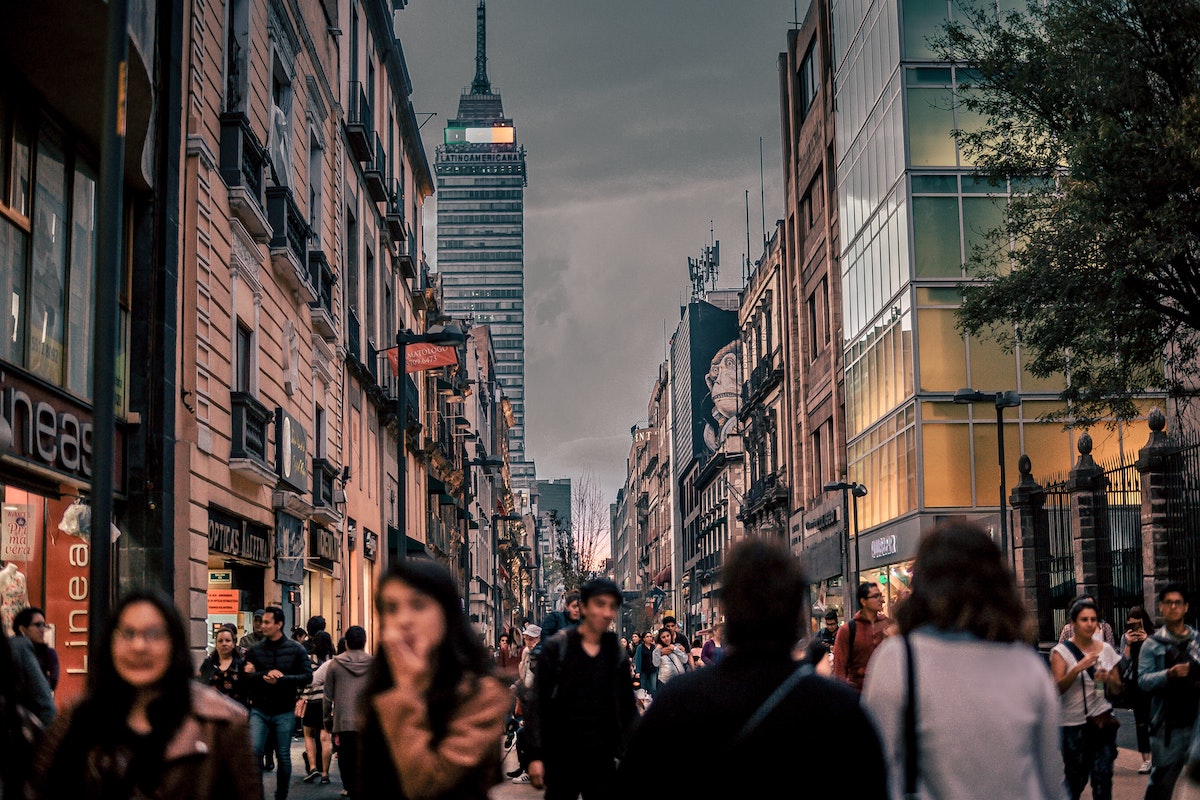
Moving to Mexico City as an Expat or Digital Nomad: Cost of Living, Housing & More
By: Heather Keys
Skip to Section
Expats moving to Mexico City will find a home unlike any other. It’s as large as New York City, with only a fraction of the cost of living, and is Mexico’s top business, social, and media hub. In the past couple of years, more and more digital nomads and other travelers have relocated to Mexico City to work remotely, immerse themselves in the culture, and enjoy the expat lifestyle.
A Few Things to See and Do
If you’re interested in learning a bit about Mexico’s history and culture, be sure to visit:
- Museo Nacional de Historia
- Chapultepec Castle, which also is home to the National Museum of Cultures
- Basilica of Our Lady of Guadalupe
- Palacio de Bellas Artes
- Zocalo, the city’s main square, and one of the largest public plazas in the world
There are restaurants and shops in the plaza, as well as an open-air market—it’s a great place to relax and enjoy the sights and sounds of the city. Of course there’s tons more to do, and as you research your expat adventure in Mexico City you’ll learn more about what areas and activities fit your interests.
Cost of Living in Mexico City
Compared to large cities within the United States, Mexico City is much more affordable. You can live comfortably in a one-bedroom apartment in the city center for around $1,200 per month, and in less expensive areas for around $850 per month. In addition to rent, you can expect to spend around $800-$1,000 per month on other expenses, such as utilities, meals and groceries, transportation, and entertainment.
Electricity is comparatively expensive in Mexico City, especially if you want to use air conditioning—though you can expect to spend about $60-$80 per month on essentials if you’re living in a one-bedroom apartment. Internet can cost around $30-$40 per month.
Housing
Mexico City is an enormous place, so it can be intimidating to start researching the best places for expats to live here. There are plenty of apartments for rent if you’re staying longer-term, and for medium and short stays, you can easily find Airbnbs or other rentals, or stay in a hotel or hostel. A few neighborhoods to check out:
- Condesa: Very popular among nomads and expats, this vibrant neighborhood is walkable, beautiful, and artsy and fun
- Juarez: A bit more gentrified, this neighborhood is great for a shorter stop or if you’re looking for a more upscale stay in an area that’s walkable and close to fun sights and activities
- Centro Historico: It’s the central city, and has the easiest access to museums, parks, local vendors, and so much more
Reliability of Utilities
Electricity and wifi may be a bit less reliable than you’re used to at home. Power outages are common but usually last only a few minutes. And if you’re working remotely, do your research into download and upload speeds wherever you’re staying—if you’re renting an Airbnb for example, ask your host to run a speed test before you sign up.
Transportation
Mexico City has a great metro system, consisting of a subway with 11 lines, a light rail, and metro buses—these can be crowded during rush hour, but for sure a better option than driving longer distances. For short distances, there’s a great network of mini buses and trolleys. Taxis are quite affordable, and if you’re looking for a more active, day-to-day option, you can find bike rentals all over the city.
Medical Care
Before moving to Mexico City, we recommend that you sign up for an international health insurance plan, and learn a bit about the country’s private health providers. In fact, Mexico is a top destination for medical tourism, so this is a great place to be if you need basic things like preventative care, prescriptions, and regular check-ups. Private healthcare here is less expensive than you’ll find in the US—which may be a reason in itself to relocate.
Climate
Mexico City is in a subtropical zone, meaning it’s mild or warm during the daytime, and cooler at night—average temperatures year-round range from about 57 to 68 degrees, with little major variation between summer and winter. You’ll see more rain during the summer, with showers in the afternoon.
Wrapping Up
Mexico City is a fantastic destination for expats and nomads—it’s got a temperate climate, tons of culture and amazing activities, and a thriving expat community. If you’re ready to take the leap, join the Frayed Passport community and share your questions and experiences!
About the Author
Originally from Indiana, Heather believes every destination has a story worth telling and a reason to visit. With a deep love of adventure, history, and psychology, she shares travel trivia, tips, and inspiration to encourage you to explore the world with curiosity and optimism. Read her other articles on Frayed Passport here.Featured image by Jezael Melgoza on Unsplash
Information published on this website and across our networks can change over time. Stories and recommendations reflect the subjective opinions of our writers. You should consult multiple sources to ensure you have the most current, safe, and correct details for your own research and plans.
Frayed Passport is a participant in the Amazon Associates Program, an affiliate advertising program designed to provide a means for sites to earn advertising fees by advertising and linking to Amazon.com. We also may share links to other affiliates and sponsors in articles across our website.




